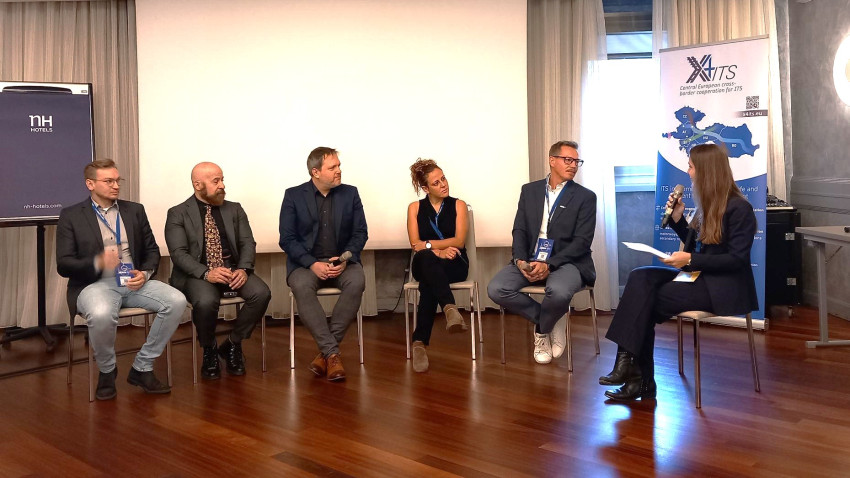Dec 2, 2024
From 5th to 7th November 2024, over 230 experts from 33 countries met at the NAPCORE Mobility Data Days in Turin to shape the future of the European mobility data landscape. The focus was on the continuation of the NAPCORE project and the central role of mobility data for innovation and sustainability.

As part of the Mobility Data Days 2024, the NAPCORE Advisory Board met to discuss strategic topics and challenges. In addition to the members of the Advisory Board, representatives of the Steering Committee and some working group leaders also took part in the discussions in Turin. The exchange focused on the involvement of stakeholders in the second phase of NAPCORE - NAPCORE X.
Other focal points of the discussion were the challenges around cybersecurity - also regarding the implementation of the EU Directive NIS 2 (Network and Information Security Directive 2), the role of artificial intelligence and the development of general terms and conditions for the further use of mobility data.
The latest revisions of key EU regulations such as the Intelligent Transport Systems (ITS)- Directive and its delegated regulations or the TEN-T Regulation present cities and regions with new challenges in terms of digitalisation and data provision. In the session ‘Data Provision in Urban and Regional Areas - Regulatory Frameworks and Practical Implementations’, representatives from the European Commission, POLIS, UITP and Wiener Stadtwerke discussed what these legal frameworks mean for cities, regions and public transport in practice.
Four questions were at the centre of the discussion:
A key outcome was the insight that new co-operation structures between actors at European, national and local level need to be created. These structures should promote the provision of data at national access points and thus drive forward the development of networked and sustainable mobility services in Europe as a whole.
Since the publication of the mobility DCAT-AP metadata standard in April 2024, interest has grown steadily. This was also reflected in the number of visitors to the session ‘Metadata in action: Update on mobility DCAT-AP’. After a brief introduction, the session focussed on practical application, experiences from initial implementations and clarification of open questions.
Two practical examples showed that it is possible to switch from the previous metadata standard CMC (Coordinated Metadata Catalogue) to mobility DCAT-AP with few adjustments and minimal effort. It also became clear that extensive documentation and supporting tools are available both for the adaptations to existing national access points (NAPs for short) and for the initial implementations, which can be accessed in the mobility DCAT-AP Wiki.
In recent years, different initiatives have shown how the cross-border exchange and integration of mobility data can be organized in a cooperative manner. The workshop ‘Cooperation NAPCORE - ITS Corridor Projects and C-Roads’, which was organized by Cross for ITS (X4ITS for short) in cooperation with NAPCORE, focused on innovative, cross-corridor projects. Representatives of the corridor projects X4ITS, MERIDIAN and MATIS shared their expertise in the session.
Another focus of the workshop was the C-Roads platform, which aims to harmonize interoperable, cross-border C-ITS services - an essential contribution to the European mobility of the future.
In addition, NAPCORE presented current achievements such as the mobility DCAT-AP metadata standard and the ITS Data Dictionary and gave an outlook on the follow-up project NAPCORE-X.
The NAPCORE Mobility Data Days 2024 impressively demonstrated the importance of collaboration, knowledge sharing and harmonization for the future of European mobility. NAPCORE and X4ITS emphasized their key roles in this process and look forward with confidence to future developments in the mobility data landscape. New legal frameworks and a metadata standard (mobility DCAT-AP) implemented this year offer valuable tools to further advance sustainable mobility in Europe.